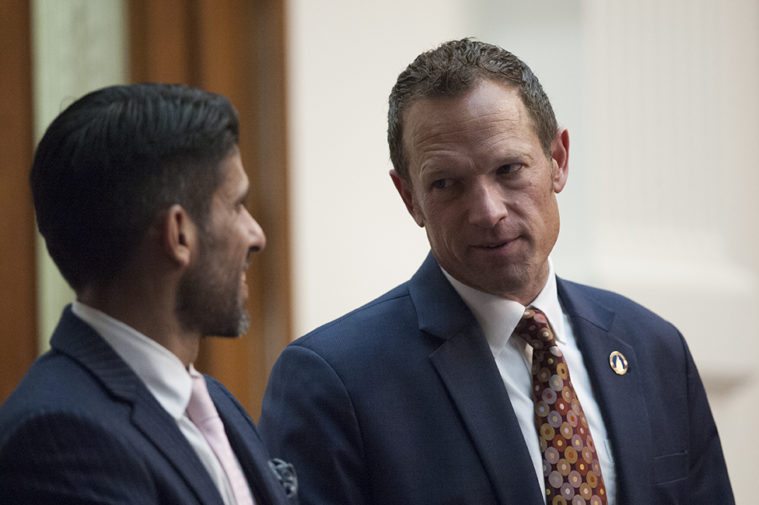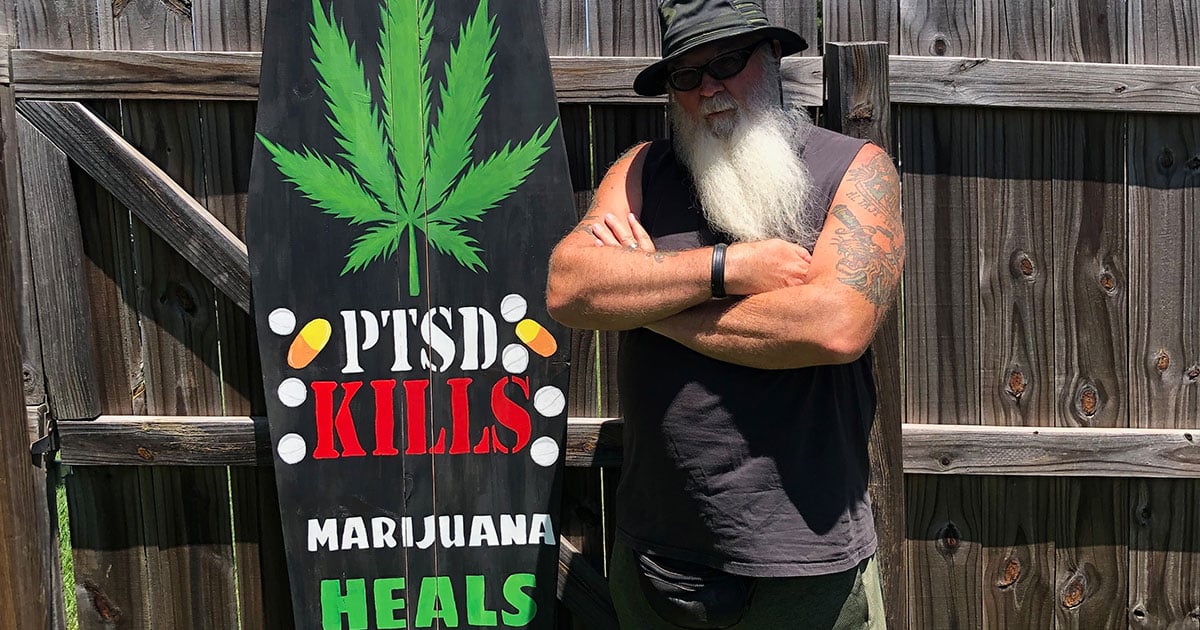
After ‘Unheard-Of’ Momentum, Medical Marijuana Bill Declared Dead by Authors


After gaining the support of most House members last week, a bill legalizing medical marijuana was declared dead Tuesday night by its authors — a Republican and a Democrat who vowed to continue working on the issue.
“The clock ran out,” Representative Jason Isaac, R-Dripping Springs, told the Observer Tuesday evening. Representative Eddie Lucio III, a Brownsville Democrat who authored House Bill 2107, and Isaac, the bill’s first co-author, said they were able to build “unheard-of” momentum for the bill — more than half of the Texas House signed on to the legislation — but weren’t able beat legislative deadlines.
In a late-night Facebook Live video, the pair said they would work in the interim to educate people on the importance of medical cannabis and pledged to be better prepared to pass the legislation next session.
House Bill 2107 would allow patients with certain debilitating illnesses to use medical marijuana at the recommendation of their doctor. The bill would expand the Compassionate Use Act passed in the Texas Legislature in 2015, which allows certain doctors to prescribe cannabis with very low levels of THC — the chemical that creates the high — to patients with severe epilepsy under specific conditions. Supporters of HB 2107 say current law is too limited, and has no benefit for individuals who suffer from cancer, post-traumatic stress disorder (PTSD), autism and other ailments.

The legislation was bottled up in the House Public Health Committee for most of the session by Representative Four Price, the Republican chair of the committee. Last week, committee members heard four hours of emotional testimony on the measure from patients who said cannabis was the only treatment that helped ease their suffering while pharmaceuticals caused new problems. About 70 people testified; only one was against the bill.
In the two days after the hearing, the number of co-authors on the bill grew from six to 76, with 29 Republicans signing on. The bipartisan support is unusual for a measure dealing in any way with marijuana — a word that supporters say scares off many conservative lawmakers who worry that their constituents will believe they favor legalizing recreational pot and hold it against them in the Republican primary.
Price called an impromptu committee vote late Friday afternoon as pressure from activists and lawmakers built. The bill passed the committee 7-2, with Price and fellow Republican Stephanie Klick, of Fort Worth, opposing.
But the legislation never made it to the House calendar. As contentious bills drew hours of debate on the House floor and priority measures for Republican leadership took a front seat, HB 2107 was too far behind to make a May 11 legislative deadline, the authors said.
Despite HB 2107’s demise, Isaac said he will look for ways to add the legislation as amendments to other bills still up for debate this session. On Monday, Isaac added an amendment to House Bill 7, a high-priority child welfare proposal that would protect parents who give medical cannabis to their child.
Isaac named the legislation “Kara’s amendment,” after Kara Zartler, a 17-year-old who suffers from cerebral palsy and severe autism. Her father, Mark, released a video showing the effect of cannabis on Kara’s tendency to self-harm that has gotten over 1 million views. He testified in favor of the bill last week, saying cannabis is the only thing that has helped his daughter.
https://www.facebook.com/isaacfortexas/videos/vb.241331270408/10155278306495409/


